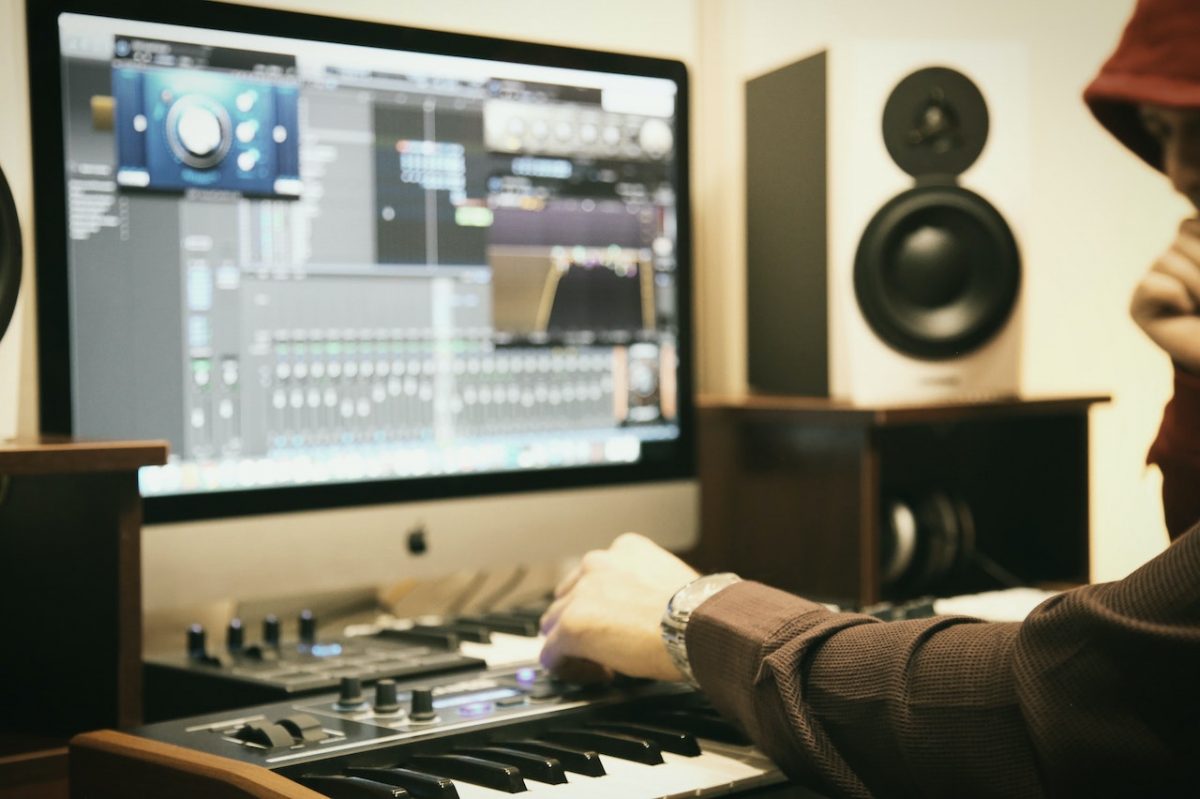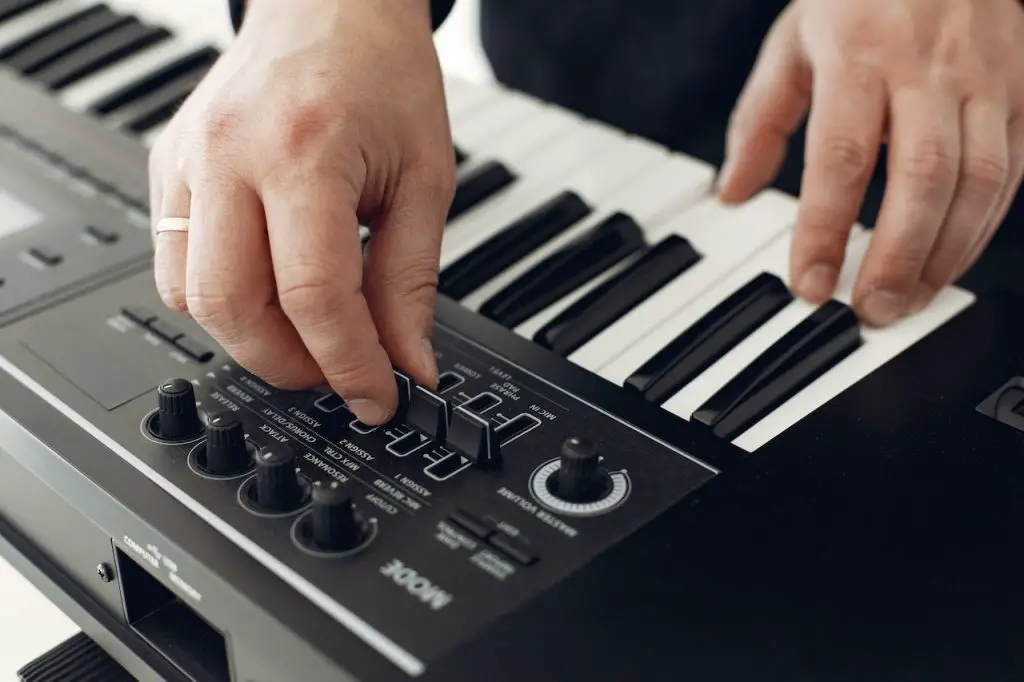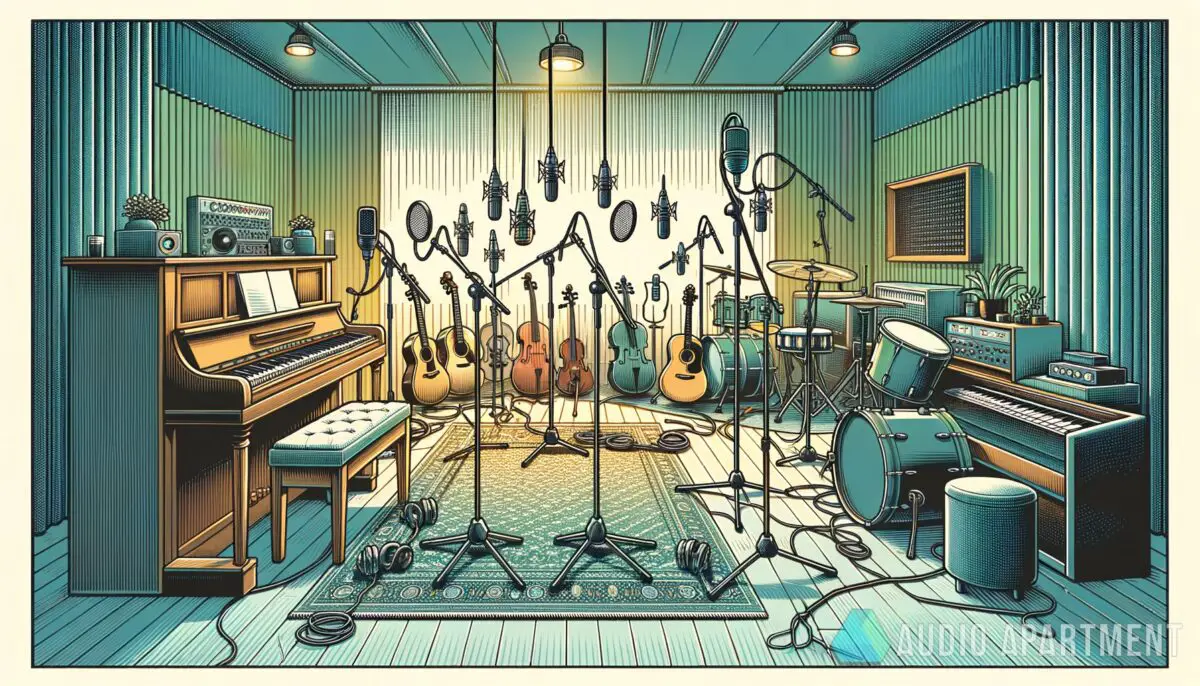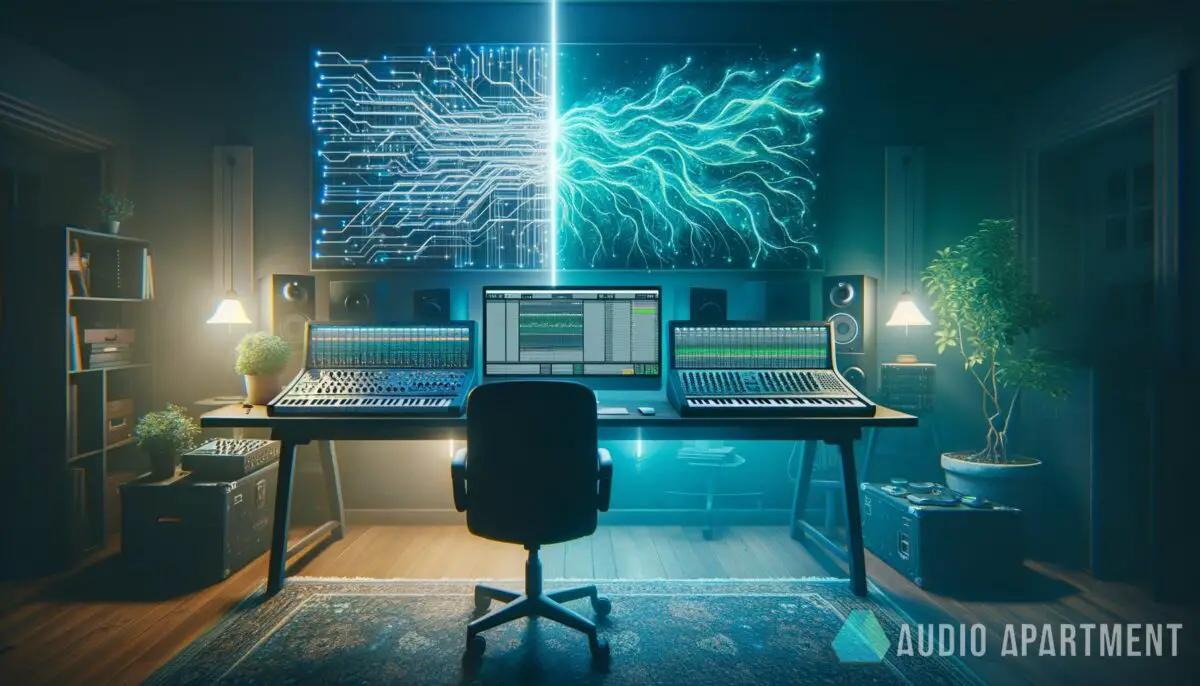Being new to music production can be daunting, especially if you don’t have any experience or the right gear. One such piece of gear that many producers use is a keyboard. But what if you don’t have the cash to buy a keyboard? Can you use a MIDI controller as a keyboard?
In this post, I’ll talk about MIDI controllers and keyboards and whether a MIDI controller can replace a traditional keyboard. So whether you are new to mixing and recording or a seasoned pro, this post is for you.
Can I use a MIDI controller as a keyboard? Yes, so long as you have an external audio output device. A MIDI controller can’t be used without one. A keyboard is a standalone piece of equipment that can be used without another device because it has internal speakers. You might also want a MIDI with enough keys to play comfortably.
What is a keyboard?
A keyboard is a group of keys or levers on a musical instrument that can be pressed together to make music. Most keyboards have a mix of larger, longer keys and smaller, shorter keys that repeat each octave. This makes it possible to play all twelve notes of the Western musical scale. The phrase “normal keyboard” encompasses various devices, including:

- Workstations
- Synthesizers
- Digital pianos
- Stage pianos
However, audio output from the keyboard is optional. As far as we’re concerned, a keyboard is a keyboard as long as it makes sounds without the aid of another device (with the exertion of its built-in speaker). Many professional and semi-professional keyboards (including certain grand pianos and huge synthesizers) do not have built-in speakers and rely on external devices to output sound.
AKAI Professional MPK Mini MK3

AKAI Professional MPK Mini MK3
What is a midi controller keyboard?
A MIDI controller keyboard is not a musical instrument that can be used independently. Thus, A MIDI keyboard or controller makes no audible noise. It only transmits MIDI data to an external device that can generate audible output. You need a MIDI cable to connect your MIDI keyboard to the performance device you want to use.
MIDI keyboard or controller makes no audible noise
The Musical Instrument Digital Interface (MIDI) standard is a set of rules for how electronic musical instruments can talk to each other about musical information like note names, lengths, volumes, etc.
Can I use a midi controller as a keyboard?
If you have a separate audio output device, then yes. However, you can’t play a MIDI controller unless you have an external audio output device. Conversely, a keyboard is an independent piece of hardware that doesn’t require any other gadget to function.
Advantages and disadvantages of using MIDI controller keyboards
MIDI controllers offer several advantages when used as keyboards in music production. Here are some of the benefits:
Advantages:
- Flexibility: MIDI controllers provide a high degree of flexibility, allowing users to control various virtual instruments and software synthesizers from a single device. They can emulate different types of keyboards, such as pianos, organs, and synthesizers, giving musicians a wide range of expressive possibilities.
- Tactile Response: MIDI controllers typically feature keys with a realistic feel, offering a tactile response similar to traditional keyboards. This allows musicians to perform with greater expression and nuance.
- Affordability: MIDI controllers are generally more affordable compared to dedicated hardware keyboards, making them accessible to a wide range of musicians and producers.
- Portability: MIDI controllers are often compact and lightweight, making them convenient for musicians who frequently perform on the move or need to set up a portable studio.
- Versatility: MIDI controllers can be used with a variety of software applications and digital audio workstations (DAWs), providing musicians with a versatile tool that can integrate seamlessly into their production workflow.
Disadvantages:
- Lack of Standalone Functionality: MIDI controllers rely on being connected to a computer or another MIDI-capable device to produce sound. They do not have built-in sound engines, so they cannot be used as standalone instruments without external hardware or software.
- Learning Curve: While MIDI controllers offer extensive capabilities, utilizing them effectively may require some learning and familiarity with MIDI protocols and software configurations.
- Dependence on External Devices: MIDI controllers need to be connected to external devices, such as computers or sound modules, to generate sound. This dependency on additional equipment can introduce complexity to the setup process.

Which of them is ideal for music production?
Consider your current level of expertise and your goals. A MIDI interface will do if all you want to do in a digital audio workstation is write music. However, if you are interested in music and want to learn to play an instrument, the keyboard is your best bet.
You should also know that not all MIDIs and keyboards are created equal, and each has unique features. Your budget and the features you think you’ll need from the device are also things to consider. But a MIDI controller is the best choice if you only want to use the device as an input method when making music.
If you want even more tips and insights, watch this video called “Use Your Digital Piano/Electronic Keyboard As A MIDI Controller | Audio Mentor” from the Reuben Chng YouTube channel.
Frequently asked questions (FAQ)
Do you still have questions? Below are some of the most commonly asked questions about whether a MIDI controller is used as a MIDI keyboard.
Can a MIDI produce its own sound?
Since a MIDI controller is just a keyboard that sends and receives MIDI data, you will need to get sounds from somewhere else. If you connect to a computer, you can use software to modify the sounds you’ve made.
Can a MIDI controller be used as a piano?
No, it’s not a standalone unit that can produce piano-like sounds on its own; rather, it works in tandem with other tools, such as a virtual instrument or digital audio workstation (DAW).
Can you use a MIDI controller without a computer?
No, you don’t need a computer to use a MIDI keyboard. However, MIDI keyboards don’t produce any sound on their own; rather, it generates MIDI signals and sends them to a linked device that processes and produces audio, so you will need to link it to some speakers or a computer with speakers.
Conclusion
You should get both if you can, since each has pros and cons and is best for different kinds of musical expression. If you can’t buy a keyboard for some reason and need to use a MIDI controller as your main instrument, don’t worry. You can still make amazing music with this affordable yet powerful tool. Follow the tips we discussed above and prepare to unleash your creative side!
This article covered what a regular keyboard is, what a midi keyboard is, and whether midi controllers can be used as keyboards. Here are some key takeaways:
Key takeaways
- A keyboard is a keyboard as long as it makes sounds.
- Keyboard used just as a MIDI controller is referred to as a “MIDI keyboard” here.
- The keyboard is an independent piece of hardware that doesn’t require any other gadget to function.
So, do you prefer to use a MIDI controller as a keyboard? And did I cover everything you wanted to know? Let me know in the comments section below (I read and reply to every comment). If you found this article helpful, check out my full blog for more tips and tricks on music production. Thanks for reading, and never stop making music.















